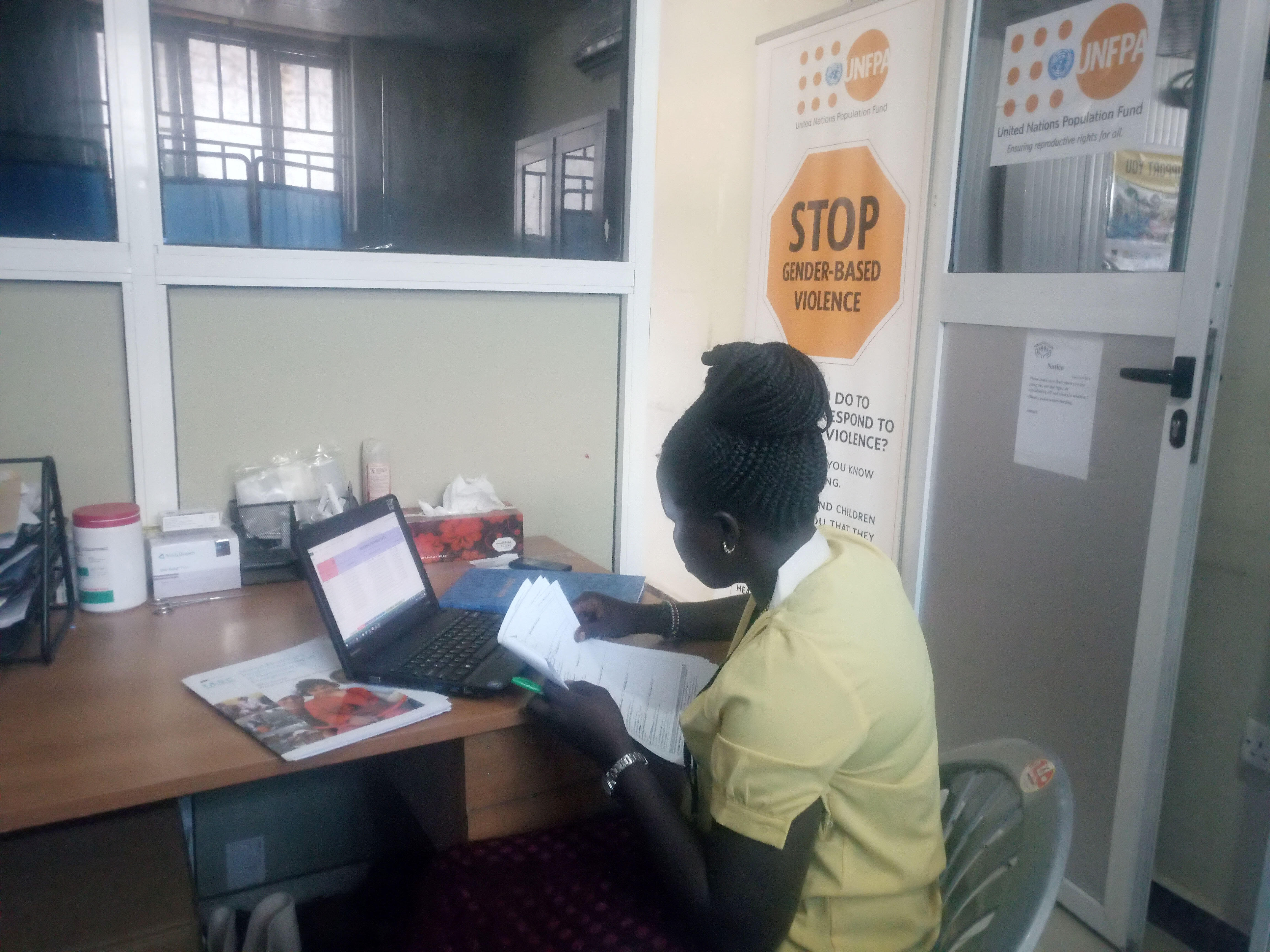Juba, South Sudan – “The girl was in coma when police brought her to the center. She was gang raped and badly beaten. We got her admitted at Juba Teaching Hospital in frantic efforts of trying to save her life. Unfortunately she passed on three days later.”
Fatuma, a response officer for gender-based violence, recalls one of the cases she handled at the Family Protection Centre, also called as ‘One Stop Centre’, a facility within Juba Teaching Hospital that provides comprehensive medical, psychosocial and legal services for survivors of GBV. She reflects on her work as well as the system within which the centre functions.
“I could only wish we could do more but there were other factors. The girl was brought to us three days after the rape. If she was brought in immediately, maybe we could have saved her life,” Fatuma sadly recalls.
The ordeals of GBV survivors are heart breaking, according to the social worker. Rape is the largest cause amongst the cases reported at the center, followed by intimate partner violence.
In 2019, more than 1,800 GBV survivors accessed services from the nine one-stop centers across the country. The centers have also played significant role in the conviction of 106 perpetrators, a major achievement in the country where formal legal services are still not widely used. Of those survivors assisted at the centers, 92 per cent were female and 8 per cent male. Also, 58 per cent were adults and 42 per cent were children.
Survivors of GBV need assistance in several aspects – services that are most commonly spread across different service providers and state institutions. As survivors are often unable to navigate these different referrals, they may choose to not pursue these services. Through the Family Protection Centre, the survivor is helped to access all these different needs under one roof, serving as a single-window of assistance for the GBV survivors. And the services are free.
“Providing support for GBV survivors has a lot of challenges but is something that should be a priority and should be sustained under any circumstances. Interventions should also not be centered at where services are being provided. This is why services of the Family Protection Center extend beyond its walls” Fatuma says, highlighting the ‘survivor-centred approach’ of the Family Protection Centre.
In a bid to create awareness, the staff of the one-stop center reaches out to communities to create awareness on the consequences of gender-based violence, the importance of seeking professional medical, psychosocial and legal assistance in the event of GBV, and the importance of timely reporting. For rape cases, timely reporting means within 72 hours of the incident.
Fatuma, together with other social workers at the facility work with the Ministry of Health, the Ministry of Gender, Child and Social Welfare, and other organizations for referrals to other allied services. For instance, some survivors may need protection so they are referred to safe spaces of other partner organizations. However, in the absence of a safe house managed by the State, it poses a challenge especially in incidences where the survivor’s life may be facing imminent threat.
In a country ravaged by conflict and displacement, gender-based violence faces the danger of being normalized and silenced. The Family Protection Centre provides a safe space for women to seek professional assistance for healing and reintegration.
The FPC at Juba Teaching Hospital was the first one-stop center for GBV survivors, opened in 2017 with the support of UNFPA and with financial assistance from the Governments of Canada and Sweden. Since then, eight more centers have been opened in Rumbek, Malualkon, Wau, Torit, Bor, Kapoeta, Yambio, and Malakal with the support of donors including Switzerland and Norway. The EU-ECHO provides the post-rape treatments kits in these facilities.


